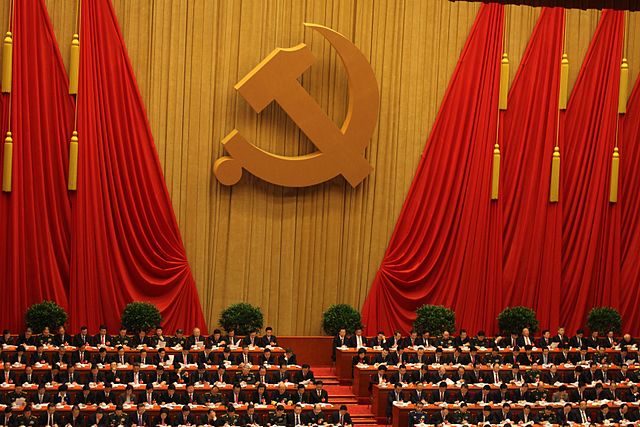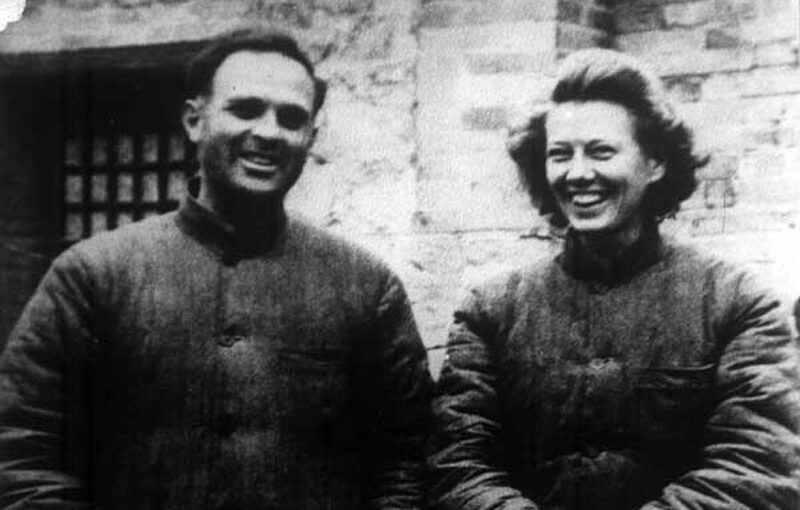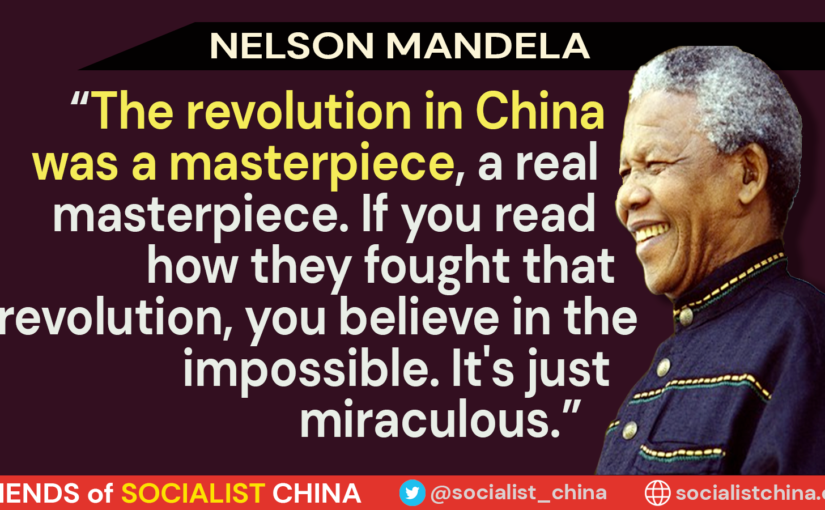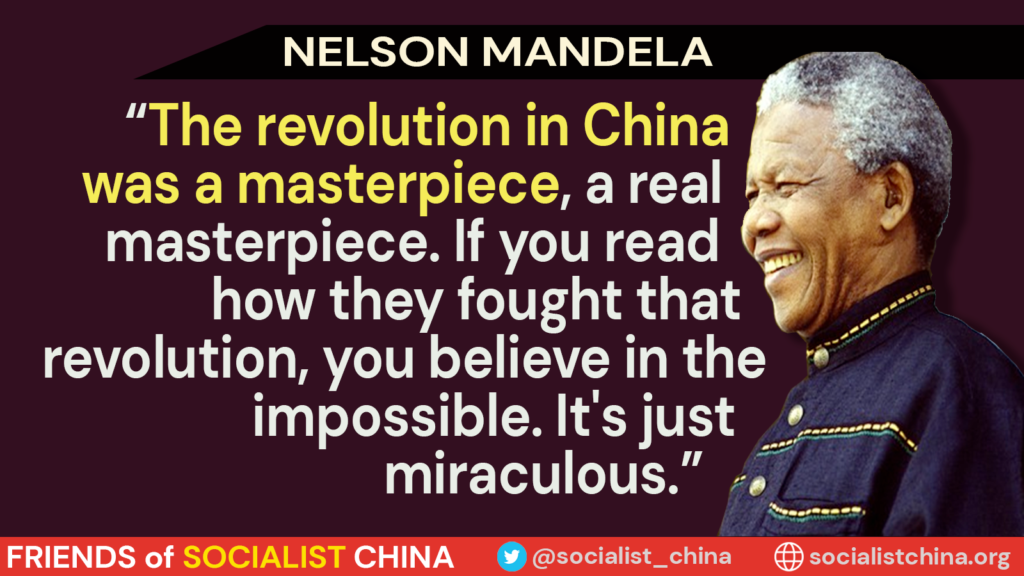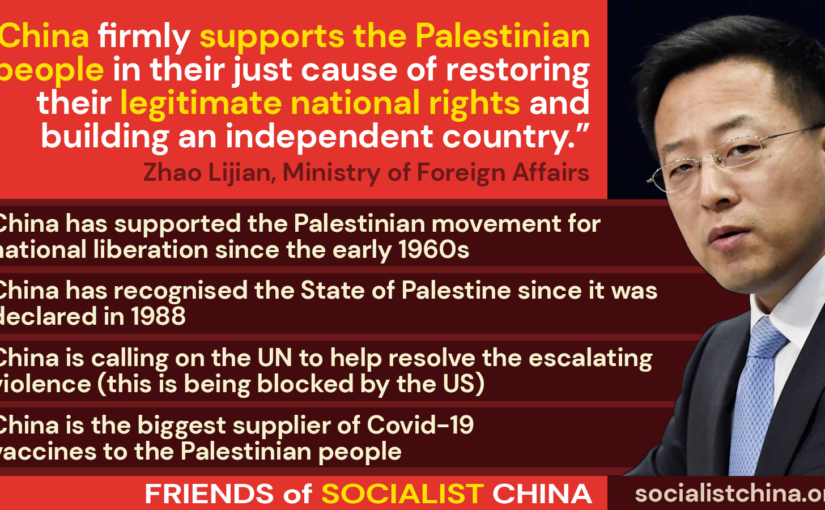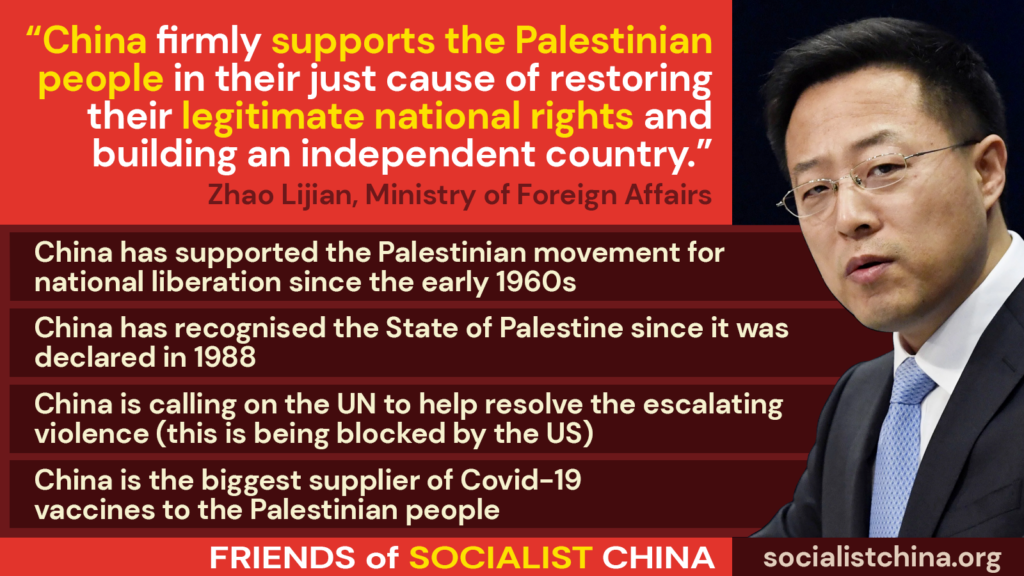We are pleased to republish this fascinating article by He Yan about David Crook, a friend of socialist China if ever there was one. The article appeared in the March 2021 issue of Voice of Friendship, the magazine of the Chinese People’s Association for Friendship with Foreign Countries.
“Cmour sacré de la Patrie,
Conduis, soutiensnos bras
vengeurs
Liberté, Libertéchérie,
Combats avec tesdéfenseurs,
Combats avec tesdéfenseurs!
Sous nosdrapeaux que la victoire
Accoure a tesmales accents,
Que tesennemisexpirants
Voient ton triomphe et notre
gloire!”
Speaking of his teacher David Crook, Zhou Nan, a Chinese diplomat in his 90s lying in bed at Beijing Hospital, began to sing The Marseillaise in French. The Marseillaise is a popular paean of freedom popularized by the French Revolution and the Spanish Civil War.
It was the morning of May 16, 2018, when the sun shone into the room and the song filled my ears. Zhou Nan then stopped singing and said to me, “In 1948, I learned The Internationale and the Marseillaise at the Central Foreign Affairs School in Nanhaishan.”
Spanish anti-fascist battlefield
On the morning of Nov 4, 2020, I went to Zhou Nan’s home. Zhou recalled: “In 1937 before he came to China, David Crook took part in the International Brigades to support the government of the Republic of Spain in fighting Franco’s fascist regime. He taught me The Internationale and The Marseillaise, which he had learned in the International Brigades. Later on, I myself often sang The Marseillaise. Although I forgot the first half, the second half is still in my mind.”
David Crook was born in London on Aug 14, 1910. His Jewish grandparents had escaped from Poland and gone to the United Kingdom in avoid of czar’s religious persecution. His father’s fur business, in spite of earlier development, failed in 1921. As a result, David dropped out of school when he was 15 years old.
David was working at a relative’s factory during the great labor strike in 1926 in the UK. His parents sent him to London Polytechnic and then to Paris to learn French so that he was able to enter the middle class. Dreaming of becoming a millionaire to repay his parents for their upbringing, David traveled to the United States alone in April 1929. As he wrote in his unpublished autobiography — From Hampstead Heath to Tian’anmen (finished in 1993) — “… it is a bad timing. I chose to come to America six months before the US stock market crashed in October 1929.”
David worked at a leather factory as the Great Depression settled in across the United States. He processed stinking pelts every day and earned a pitiful $15 a week. Witnessing the miserable life of laborers on the bottom rung of society, he began to read books and reports about the Soviet Union.
Through part-time work and part-time study, he was admitted to Columbia University. He then joined the Communist Youth League and became an activist in the student movement, which gave him a chance to gain more knowledge about communism. Combining communist theory and practice, he and his schoolmates supported the local miners’ strike in Harlan County, Kentucky, which ended up with his being expelled. That prompted him to join the Communist Party of Britain in London after his graduation from Columbia.
In July 1936, Francisco Franco led a military coup to overthrow the democratically elected left-wing government of the Republic of Spain and establish fascist rule, triggering a civil war in the country. David joined the International Brigades and fought with the Spanish people. He wrote: “Our batch of volunteers rode on from the border of France and Spain to Barcelona at the beginning of January 1937. Uniformed young soldiers of the Republican Army leaned out of the windows, their faces smiling, their right arms raised in the clenched-fist popular front salute, above the vow, whitewashed on the wooden sides of the train: ‘Rather die than submit to tyranny.’ That was the spirit of Republican Spain.”
David was shot in the leg in the battle defending the Jarama Valley. Later, the song Jarama commemorated the battle. The lyrics include: “There’s a valley in Spain called Jarama. It’s a place that we all know right well. For it’s there that we gave of our manhood. And many of our brave comrades fell.”
David recalled in an article: “On Feb 12, 1937, Sam Wild and I were part of a platoon of British Volunteers stationed on the crest of a hill, having been told, ‘Don’t leave that bloody hill till you’re told to.’ Bloody it was and we obeyed orders until none of our mates were left alive. Then we retreated down the slope into a grove of olive trees. There we took cover behind the mounds of earth banking up the trees.”
At midnight, he was sent to the hospital in Madrid where Norman Bethune worked. During his six weeks of hospitalization, he became an assistant broadcaster in English and interviewed Ernest Hemingway. “Ernest Hemingway covered the Spanish Civil War with his pen. Hemingway in a hotel room in Madrid, laughing, gambling, drinking with friends as the bombs burst nearby. It was, of course, the top floor of the hotel, the most dangerous place to be. I was in that room one night with Hemingway and his pals.”
During his stay in the hospital, he borrowed a book from Bethune called Red Star Over China by American journalist Edgar Snow and thus began to follow the Chinese revolution. As he later wrote in his article Red Star Leads Me to China, “I read Snow’s reports on five counterattacks against (the Kuomintang’s) Encirclement and Extermination Campaign and the (Red Army’s) Long March, including the crossing of the Dadu River, flying away from the Luding Bridge and tramping over snow mountains and marshy grasslands. I got to know Yan’an, a revolutionary base area in China, and its local life. I was deeply touched by the heroism of the Chinese workers, farmers, intellectuals and populace in the face of Japanese invaders. … I found things in common between the Chinese People’s War of Resistance against the Japanese Aggression and the Spanish people’s war against fascism. When the International Brigades left Spain, I was eager to fight in Yan’an one day.”
In the summer of 1938, David was sent by the Communist International from Spain to Shanghai, which was under Japanese occupation, to prepare reports on local workers. He taught at St. John’s University. In 1940, he went to Chengdu, Sichuan province, and taught at the University of Nanking, which had been forced to move to Chengdu because of the Japanese invasion. David met Isabel Brown in the office and fell in love with her at first sight. Isabel was born in Chengdu and her parents were Canadian missionaries. In 1938, she earned a master’s degree in child psychology from the University of Toronto in Canada and came back to China. She came to replace her sick sister as a teacher.
Employed by the National Christian Council of China, Isabel participated in the rural construction of Xinglongchang, Bishan county. David often went to see her at that time. In the summer of 1941, they visited a spot by the Dadu River where the Red Army had fought a fierce battle. On the iron chain bridge stretching across the river, David proposed to Isabel.
In June 1941, when Nazi Germany invaded the Soviet Union, David decided to return to Britain via New York to fight fascism. He worked with Edgar Snow at the American Committee in Aid of the Chinese Industrial Cooperatives in New York and raised money for China’s anti-fascist war. After a long journey, David and Isabel returned to London one after another. They married in 1942. David was enlisted in the British Royal Air Force and was sent to India, Ceylon (Sri Lanka) and Burma (today’s Myanmar) for intelligence work. Isabel joined the Communist Party of Britain and served in the Canadian Women’s Army Corps.
After the end of World War II in 1945, David retired from military service and began to study the Chinese language at the School of Oriental and African Studies of the University of London, while Isabel pursued her PhD in philosophy in anthropology under Raymond Firth at the London School of Economics. Rereading Red Star Over China renewed their interest in the country. The couple wanted to see changes in China, and their ideas were supported by the Central Committee of the Communist Party of Britain which gave them a letter of introduction.
In the autumn of 1947, the couple traveled via Hong Kong to Shanghai and Tianjin. With the help of the underground organization of the Chinese Communist Party, they arrived at Shilidian (Ten Mile Inn) in Shidong village of Hebei province’s Wu’an county, in the Taihang mountain area. They participated in the land reform as observers. In homespun uniforms, they integrated into the local community, eating with farmers while carrying bowls and squatting on the ground. Through talks, they collected historical data and materials on land reform in the village between 1937 and 1947, yielding two works: Revolution in a Chinese Village: Ten Mile Inn; and Ten Mile Inn: Mass Movement in a Chinese Village.
With the liberated areas of north China expanded and merged, the liberation of Beijing and Tianjin were close at hand. In the summer of 1948, the couple finished their investigations and were ready to return to Britain. Wang Bingnan, deputy director of the Foreign Affairs Department of the CPC Central Committee, invited them to teach English at the Central Foreign Affairs School. They agreed.
Continue reading From Spain to China: The story of David Crook
